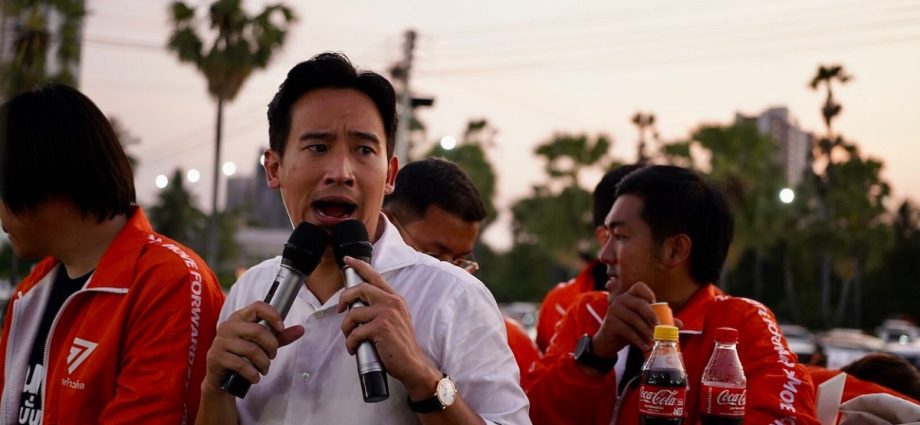
This week, Thai leadership hopeful and Move Forward Party (MFP) leader Pita Limjaroenrat hit several obstacles in his quest for the prime ministership.
On Wednesday, Thailand’s Election Commission announced there was evidence that Pita had violated electoral law. The alleged violation involves an undeclared ownership of shares in a media company, which is prohibited for members of Parliament.
Also read: Thailand: Pita’s loss is Thaksin’s gain
There is also an allegation that Pita and his party may have broken the law by its proposal to amend Thailand’s strict legislation against criticizing the monarchy. The EC has referred his case to the Constitutional Court and recommended be suspended as an MP.
In a statement, the electoral body said “the Election Commission has considered the issue and perceives that the status of Pita Limjaroenrat is considered to be voided, according to the Thai constitution.”
Pita has dismissed the allegations, claiming the shares were transferred and the company is not an active media organization. But the stakes are high. He faces not only disqualification from high office, but up to 10 years’ jail and a 20-year ban from politics if found guilty.
Pita’s hopes were dashed further on Thursday when the military-dominated Parliament voted down his candidacy for prime minister. The vote required a majority of the 749 seats in the combined sitting, with the aspirant only managing 324 votes. The next vote is due to be held on July 19.
This is a severe reality check for Pita, particularly after his party’s historic election victory in May, considered by some the most consequential since the 1970s. The victory was largely due to widespread support from Thailand’s youth, who are frustrated by draconian laws and military dominance since the 2014 coup.
The MFP secured 151 seats in the 500-strong Parliament after running on a reformist platform promising to tackle the military’s hold on politics, break up powerful monopolies, legalize same-sex marriage and end the lèse-majesté laws prohibiting criticism of the royal family.
The elections were the first since the pro-democracy protests in 2020, which saw tens of thousands of Thais demonstrate on the streets on Bangkok against the military and monarchy, particularly the lèse-majesté laws.
After the election, MFP had formed a powerful eight-party coalition of like-minded, progressive parties controlling 313 seats in the new Parliament. But this was evidently not enough to take power.
Difficult choices
This is a tough lesson for Pita, a relative newcomer to Thai politics, and a bitter blow for the millions of Thais who voted for meaningful political change.
But it was aways likely the old guard of military-backed politicians would fight back. Pita and his coalition represent a new Thailand, one that is democratic and free and one that has no place for de facto military rule.
With Pita’s chances of becoming prime minister increasingly bleak, he now has a difficult choice to make.
Pita and his party could cede to pressure and drop their promises of reform. MFP already removed any mention of the lèse-majesté laws when it went into coalition with its political partners.
But this has its own challenges. Backing down on meaningful political change would be seen as a rejection of the mandate given to MFP by millions of Thais seeking change. This could see the coalition’s support melt away. However, there is a good chance Parliament would still reject his candidacy anyway.
Or Pita could ask Thais to hit the streets in the hope of building pressure through protest. This could result in a violent backlash from the military, but it could also galvanize the support of millions of people.
This would be reminiscent of the protests of 2020 and would see Thais on the streets demanding that their future is not stolen again by the military. But it would be a high-risk approach and its outcome very uncertain.
Regardless, there appears a strong chance that the old guard will attempt to remove MFP from politics altogether. This would be a repeat of 2020, when Move Forward’s predecessor, Future Forward, was dissolved and its leaders banned from politics for a decade by the Constitutional Court. The current allegations leveled at Pita appear also to be politically motivated.
Regardless of what action Pita takes, there is a clear obligation on the current administration to respect the will of the people it claims to represent.
The best and right course of action is for Parliament to vote for the candidate nominated by the party or parties with the most votes, and that is Pita. Anything else would be a severe dereliction of their duty and would further damage democracy in Thailand.
After a decade of military rule, it is time Thais had their voices heard.

